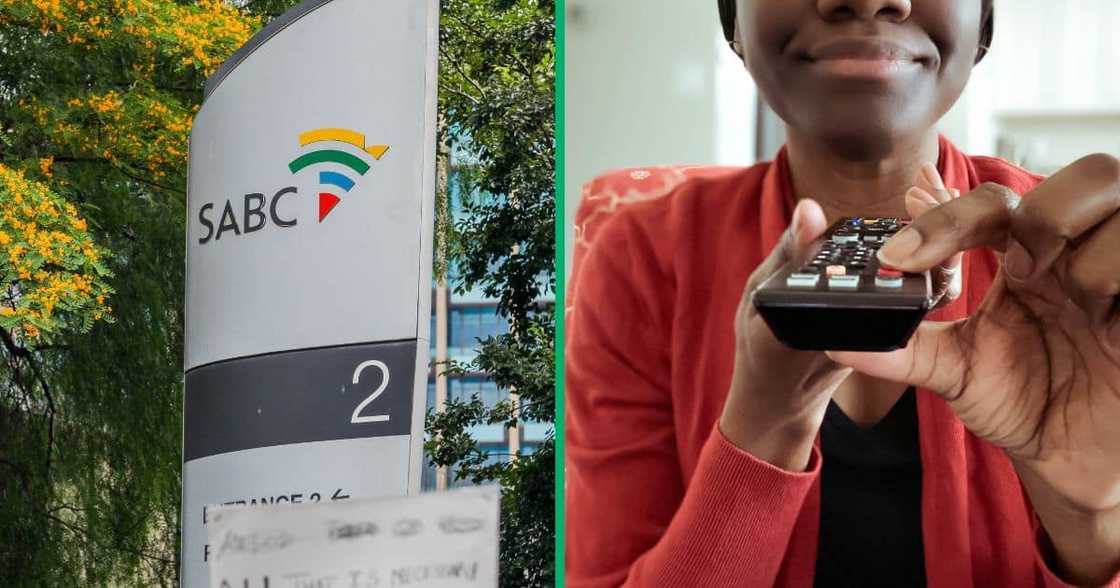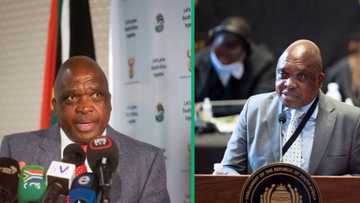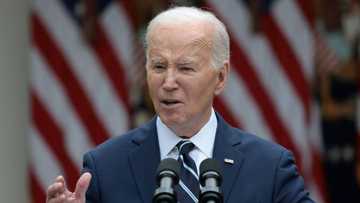South Africans Will Never Get Arrested for Not Paying TV License
- SABC will not issue warrants of arrest or fine to those who have not paid their TV licenses
- The Corporation had to reassure South Africans that they would not be arrested while they urged everyone to pay their TV licenses
- Experts have called for legislative reform and noted the urgent need to decriminalise non-payment of TV licenses

Source: Getty Images
The South African Broadcasting Corporation (SABC) has clarified that it would never threaten non-paying TV license holders with arrest warrants, highlighting a significant issue within South Africa's legal and broadcasting landscape.
Despite the ongoing debate and worry about whether or not people might get arrested and the growing calls to decriminalise not paying for TV licenses.
In his note, "Should not paying your TV license be a crime," published on BizNews, Zakhele Mthembu, BA Law LLB, a legal researcher at the Free Market Foundation, criminalising the non-payment of TV licenses diverts valuable resources from addressing more serious crimes.

Read also
Funeral Company to offer free burials for George collapse victims, South Africans impressed
The Issue of Criminalisation
Mthembu said that under Section 27 of the Broadcasting Act No. 4 of 1999, South Africans are legally required to pay for a TV license, and non-compliance can potentially lead to fines or imprisonment.
PAY ATTENTION: stay informed and follow us on Google News!
However, criminalising the non-payment of TV licenses diverts valuable resources from addressing more serious crimes.
"South Africa's high rates of violent crime, including over 86 reported murders per day and a mere 8% conviction rate for these crimes, highlight the critical need to focus law enforcement efforts on protecting public safety rather than enforcing non-harmful statutory offences."
South Africans were still unprepared to pay for TV licenses despite the fake emails from the SABC.
See the post below:
@Lebohan16235629 said:
"People who are paying for TV licenses, why are you paying for TV licenses while paying for DSTV? It's paying SABC."
@derrickrama commented:
"I'll rather go to prison I will not pay. SABC must look into other methods of getting money. Indians are selling TV without licenses, and we must die because we did not want to buy Indian brands and end up with a TV that required us to get licenses. Let's go to prison for not paying."
A Call for Legislative Reform
Mthembu also said the SABC's recent statement and ongoing financial challenges highlight a broader issue within South African law.
"The need to prioritise laws that protect individuals and property over those that primarily serve as revenue tools."
Criminalising non-harmful behaviour undermines the legal system's credibility and diverts resources from addressing violent crime.
Advocates for legal reform argue that the focus should be on decriminalising non-payment of TV licenses and instead finding alternative, non-punitive ways to fund public broadcasting.
This approach would allow law enforcement to concentrate on serious offences that threaten public safety.
The Impact on Public Perception
When considered unreasonable or unjust, laws erode public respect for the legal system.
The mass non-compliance with TV license payments reflects a broader discontent with laws perceived as unfairly punitive.
This discontent can lead to a general disregard for more critical laws to protect public welfare.
SABC's clarification
This clarification came in response to a scam email campaign where malicious actors impersonated the SABC, falsely claiming that non-payment of TV licenses could lead to arrest.
While the SABC's statement aimed to dispel public fears, it also highlighted the broader, ongoing debate about the criminalisation of non-harmful behaviour and the efficacy of TV license mandates.
The SABC's long-standing financial challenges with TV license fee collections, a critical revenue stream for the public broadcaster, became the focal point of the SABC's desperation to collect the license fee.
Despite billing approximately R4.5 billion, the actual revenue from TV licenses has declined, dropping from R928 million in the 2013/14 financial year to R741 million in 2022/23.
This significant shortfall underscores widespread public resistance to paying TV licenses, raising questions about the relevance and fairness of this mandate.
SABC TV licence pensioners' discount
Previously, Briefly News reported that, based on the SABC regulations, there is a provision for some categories of citizens to enjoy discounted rates on their television licenses.
These include state social grant recipients, people 70 or older, disabled people, and war veterans.
While pensioners may qualify for this discount, certain conditions may prevent them from receiving it, the most important of which is if they still receive a government pension.
PAY ATTENTION: Follow Briefly News on Twitter and never miss the hottest topics! Find us at @brieflyza!
Source: Briefly News




